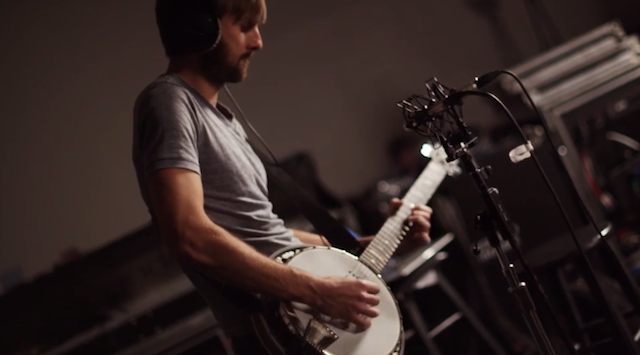Why We Create Music

This is such an amazing piece on why people create music, and the feeling and emotion behind it. Like writing, it can be hugely personal and a lot of people don’t understand why people create stuff like music and why people write to tell stories to the world. If you work in an job where you don’t need to have a feeling, but rather need work like a machine, then give this a watch anyway and see why people create the stuff that you probably love.
Why We Create Music from Already Alive on Vimeo.



Music and Emotions
The most difficult problem in answering the question of how music creates emotions is likely to be the fact that assignments of musical elements and emotions can never be defined clearly. The solution of this problem is the Theory of Musical Equilibration. It says that music can’t convey any emotion at all, but merely volitional processes, the music listener identifies with. Then in the process of identifying the volitional processes are colored with emotions. The same happens when we watch an exciting film and identify with the volitional processes of our favorite figures. Here, too, just the process of identification generates emotions.
An example: If you perceive a major chord, you normally identify with the will “Yes, I want to…”. The experience of listening to a minor chord can be compared to the message conveyed when someone says, “No more.” If someone were to say these words slowly and quietly, they would create the impression of being sad, whereas if they were to scream it quickly and loudly, they would be come across as furious. This distinction also applies for the emotional character of a minor chord: if a minor harmony is repeated faster and at greater volume, its sad nature appears to have suddenly turned into fury.
Because this detour of emotions via volitional processes was not detected, also all music psychological and neurological experiments, to answer the question of the origin of the emotions in the music, failed.
But how music can convey volitional processes? These volitional processes have something to do with the phenomena which early music theorists called “lead”, “leading tone” or “striving effects”. If we reverse this musical phenomena in imagination into its opposite (not the sound wants to change – but the listener identifies with a will not to change the sound) we have found the contents of will, the music listener identifies with. In practice, everything becomes a bit more complicated, so that even more sophisticated volitional processes can be represented musically.
Further information is available via the free download of the e-book “Music and Emotion – Research on the Theory of Musical Equilibration:
http://www.willimekmusic.de/music-and-emotions.pdf
or on the online journal EUNOMIOS:
http://www.eunomios.org
Enjoy reading
Bernd Willimek, music theorist